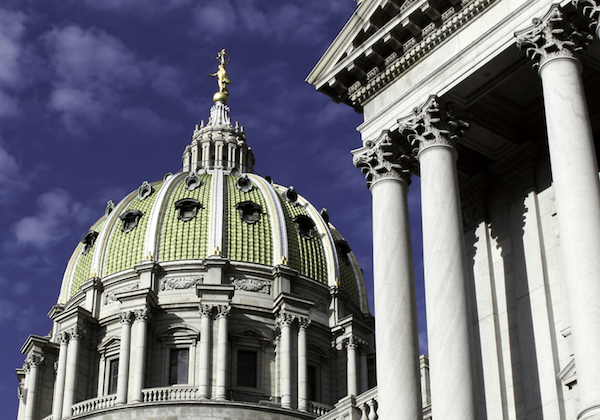Media

CF’s 2020 Vision
The Commonwealth Foundation’s mission sounds pretty simple: transform free-market ideas into public policies so all Pennsylvanians can flourish. Accomplishing that mission—with a divided government, powerful special interests, and a diverse population—is a bit more complicated.
Looking back at 2019, we’re happy to have achieved important victories in educational opportunity and criminal justice reform that will help families around the Keystone State grow and prosper.
- More scholarships for kids. Last year’s budget deal included a $25 million increase in the Educational Improvement Tax Credit (EITC) scholarship program, which can provide scholarships for 15,000 children who were denied last year due to lack of funds. The companion Opportunity Scholarship Tax Credit (OSTC) was boosted by $5 million, which is targeted specifically to help low-income students in failing schools.
- Bipartisan criminal justice reform. In December, Gov. Wolf signed two bills that firmly establish Pennsylvania as a national leader on criminal justice reform. Senate Bill 500, sponsored by Sen. Lisa Baker, will provide critical resources and training to county-based parole and probation systems. Senate Bill 501, sponsored by Sen. Tom Killion, improves sentencing and parole practices to match sentences to offenders’ community risk, protect the public, and reduce over incarceration. The anticipated savings will be reinvested where resources are most needed—at county probation departments and improved sentencing practices.
As we head into 2020, CF has a bold vision to build on these successes.
- Opportunity. It’s great that thousands of students will benefit from last year’s tax credit scholarship increases. But around 50,000 scholarships applications are denied each year—and millions of dollars in donations are turned away—due to state-imposed caps on the programs. An automatic escalator would allow the credits to increase to meet the needs of families around Pennsylvania.
- Independence. The economy is booming, unemployment is at the lowest rate in 50 years, and businesses can’t find workers to fill job openings. Despite this, the number of Pennsylvanians on Medicaid is near record numbers. According to State Rep. Matthew Dowling, 51% of the state’s able-bodied Medicaid recipients do not work. Numerous studies—and common sense—tell us that the longer you remain unemployed, the harder it is to find work. Legislation introduced by Sens. Martin and Argall would require healthy people to work, volunteer, or attend school in order to receive Medicaid. Rep. Dowling has similar legislation in the House. Coupled with recent changes in the federal food stamp program, work requirements for Medicaid would help ensure people don’t languish in unemployment
- Prosperity. Economic growth and government spending restraint are essential for a state to proper. Pennsylvania, like most of the U.S., is experiencing strong economic growth. Unfortunately, the state government is growing at an even faster pace. This is not a recipe for long-term success because it will be nearly impossible to rein in government programs when the economy slows down. That’s why the Taxpayer Protection Act, which restrains spending growth to match economic growth, is crucial for the health of our state economy.
- Fairness. In 2018, the U.S. Supreme Court ruled in Janus vs. AFSCME that public-sector workers do not have to pay fees to unions as a condition of employment. But state law still allows the fees, and teachers’ unions in Pennsylvania are still including fee language in new contracts. Lawmakers need to bring Pa. law into compliance with the Janus ruling and protect state workers’ rights. Passing Rep. Kate Klunk’s House Bill 785 to make sure new public workers and non-union members know they don’t need to pay union fees to keep their jobs would be a great first step.
Pennsylvania wrote the first chapter in America’s story in 1776—now, CF wants our state to write a new chapter of liberty and prosperity for all. Our 2020 vision is to enact policies that promote freedom in education and the workplace, personal success through employment, and respect for taxpayers. Lawmakers should make a new year’s resolution to ensure that Pennsylvania becomes a place where all can flourish.